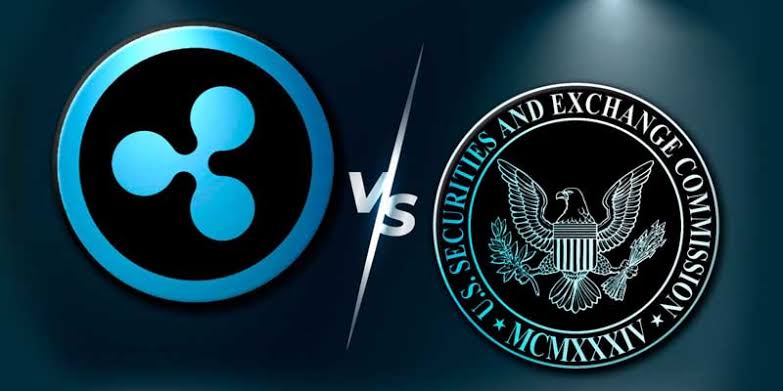Is XRP A Commodity? The Ripple Case And Implications Of SEC Settlement

Table of Contents
The SEC's Case Against Ripple: A Deep Dive into the Arguments
The SEC's lawsuit against Ripple alleges that XRP is an unregistered security, violating federal securities laws. Their argument centers on the Howey Test, a legal framework used to determine whether an investment contract qualifies as a security. The Howey Test considers four elements: an investment of money, in a common enterprise, with a reasonable expectation of profits, derived from the efforts of others.
The SEC contends that Ripple's sales and distribution of XRP meet all four criteria. They argue that purchasers of XRP reasonably anticipated profits based on Ripple's efforts to develop and promote the cryptocurrency. The SEC presented evidence suggesting that Ripple directly sold XRP to institutional investors, further bolstering their claim that XRP functioned as an investment contract.
- Key allegations made by the SEC: XRP sales constituted unregistered securities offerings; Ripple engaged in a continuous offering of XRP; Ripple misled investors about XRP's decentralized nature.
- Examples of evidence presented by the SEC: Internal Ripple communications; Details of XRP sales to institutional investors; Statements made by Ripple executives.
- Ripple's counterarguments: Ripple argued that XRP is a decentralized, functional cryptocurrency operating independently of Ripple's efforts. They contended that the Howey Test doesn't apply in this context.
Ripple's Defense: Arguments for XRP as a Commodity or Payment Token
Ripple's defense centers on the assertion that XRP is a decentralized digital asset, functioning as a payment token independent of Ripple's actions. They argue that XRP’s use in facilitating cross-border payments demonstrates its utility as a functional cryptocurrency, distinct from a security. Their legal team contends that purchasers of XRP didn't expect profits primarily based on Ripple's efforts but rather on the overall adoption and utility of XRP within the broader cryptocurrency ecosystem.
Ripple challenged the SEC's application of the Howey Test, arguing that the test is not applicable to cryptocurrencies with decentralized characteristics. They pointed to XRP’s widespread adoption by various exchanges and its utilization in payment networks as evidence of its functionality beyond a mere investment.
- Key arguments presented by Ripple’s legal team: XRP is a decentralized cryptocurrency; The Howey Test is inapplicable; XRP's use cases extend beyond investment.
- Expert opinions supporting Ripple’s position: Testimony from experts in blockchain technology and financial markets.
- Examples of XRP's use as a payment mechanism: Its integration into various payment platforms; Transactions facilitated using XRP.
The Ripple Case Settlement and its Implications for XRP Classification
The SEC vs. Ripple case concluded with a partial settlement. While not a complete victory for either side, the settlement involved Ripple paying a significant fine but without admitting guilt to selling unregistered securities. Importantly, the settlement did not explicitly classify XRP as a security or a commodity. The ambiguity leaves the question open to interpretation, creating uncertainty within the market. This outcome significantly impacts XRP's legal status and trading, allowing for continued exchange listings but also causing uncertainty for investors.
- Key points of the settlement agreement: A substantial fine paid by Ripple; No admission of guilt; Ambiguity regarding XRP's legal classification.
- Impact on XRP price and trading volume: Significant initial price volatility followed by some stabilization, although uncertainty remains.
- Potential regulatory changes following the case: The case set a precedent for future regulatory action toward cryptocurrencies.
The Broader Implications for the Crypto Industry and Regulatory Landscape
The Ripple case has profound implications for the entire cryptocurrency landscape. It highlights the ongoing challenges of navigating the regulatory gray areas surrounding digital assets. The case's outcome influences how regulators approach other crypto projects, potentially leading to increased scrutiny or more defined regulatory frameworks. The uncertainty created by the case can affect investor confidence and market stability.
- Potential changes in regulatory approaches towards crypto assets: Increased clarity or further ambiguity depending on future regulatory actions.
- Impact on investor confidence and market stability: Increased volatility and uncertainty for investors.
- Future legal challenges and regulatory uncertainties: The Ripple case sets a precedent, but the regulatory landscape remains largely undefined.
The Future of XRP: Navigating the Commodity Question
The SEC and Ripple presented compelling arguments regarding XRP's classification. The settlement, while providing some clarity, leaves significant ambiguity about XRP's legal status as a commodity or a security. This uncertainty will likely continue to impact the cryptocurrency market and the regulatory landscape. The implications extend far beyond XRP, affecting the broader crypto industry and influencing future regulatory decisions.
Stay updated on the evolving landscape of XRP and its classification as a commodity or security. Continue your research into the legal complexities surrounding XRP to make informed investment decisions. Understanding the ongoing legal battles and regulatory developments is crucial for anyone involved in the cryptocurrency market, especially concerning assets like XRP, which operate in a constantly shifting regulatory environment. The future of XRP, and indeed much of the cryptocurrency market, depends on future rulings and regulatory clarity surrounding this crucial issue.

Featured Posts
-
 Kort Geding Gemeente Kampen Eist Stroomnetaansluiting Van Enexis
May 02, 2025
Kort Geding Gemeente Kampen Eist Stroomnetaansluiting Van Enexis
May 02, 2025 -
 England Women Vs Spain Women World Cup Final Lineup Predictions And Analysis
May 02, 2025
England Women Vs Spain Women World Cup Final Lineup Predictions And Analysis
May 02, 2025 -
 Xrp Investment Analysis Post Sec Ruling Price Projections
May 02, 2025
Xrp Investment Analysis Post Sec Ruling Price Projections
May 02, 2025 -
 Defi Cycliste De 8000 Km L Histoire De Trois Jeunes Du Bocage Ornais
May 02, 2025
Defi Cycliste De 8000 Km L Histoire De Trois Jeunes Du Bocage Ornais
May 02, 2025 -
 Xrp And The Sec Latest News And The Commodity Classification Question
May 02, 2025
Xrp And The Sec Latest News And The Commodity Classification Question
May 02, 2025
Latest Posts
-
 Violences Conjugales A Dijon Le Boxeur Bilel Latreche Devant La Justice En Aout
May 10, 2025
Violences Conjugales A Dijon Le Boxeur Bilel Latreche Devant La Justice En Aout
May 10, 2025 -
 Dijon Bilel Latreche Boxeur Accuse De Violences Conjugales Comparaitra En Aout
May 10, 2025
Dijon Bilel Latreche Boxeur Accuse De Violences Conjugales Comparaitra En Aout
May 10, 2025 -
 Municipales Dijon 2026 Un Programme Ecologique Pour La Ville
May 10, 2025
Municipales Dijon 2026 Un Programme Ecologique Pour La Ville
May 10, 2025 -
 Dijon Psg Le Club De La Capitale S Impose En Arkema Premiere Ligue
May 10, 2025
Dijon Psg Le Club De La Capitale S Impose En Arkema Premiere Ligue
May 10, 2025 -
 Arkema Premiere Ligue Victoire Difficile Du Psg Contre Dijon
May 10, 2025
Arkema Premiere Ligue Victoire Difficile Du Psg Contre Dijon
May 10, 2025
